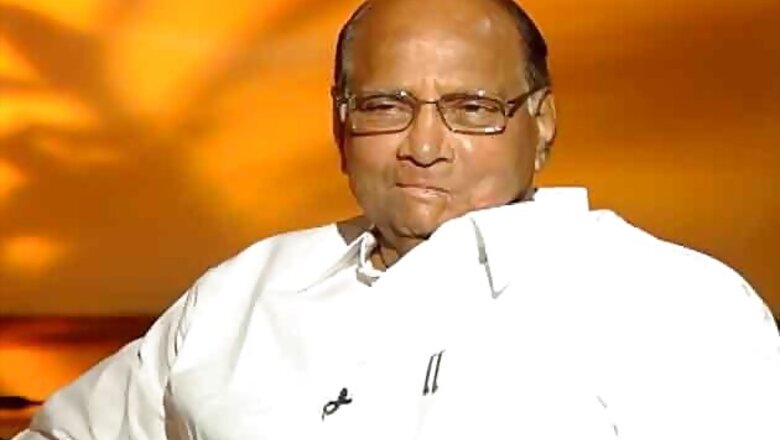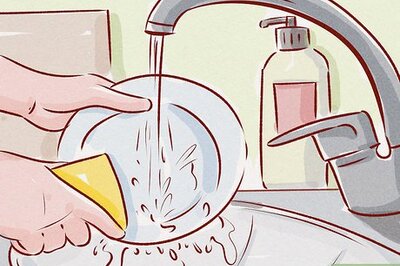
views
New Delhi: Prime Minister Manmohan Singh has called a meeting of Finance Minister Pranab Mukherjee, Agriculture Minister Sharad Pawar, Commerce and Textiles Minister Anand Sharma and Food Minister KV Thomas on April 23 to address the concerns reflected in Pawar's letter to him earlier this month. Pawar had termed UPA's agriculture policy on exports 'ambivalent', 'constantly prevaricating' and 'against the interests of the farming community'.
Pawar, in his letter, took on Commerce and Textile Minister Anand Sharma and Food Minister KV Thomas while claiming that the Prime Minister was on his side when it came to an agricultural policy that encouraged the farmer with remunerative returns.
But despite that, he alleged, "our Government has time and again, taken decisions which go against the interests of the farming community".
Pawar argued that a free market and a free trade regime will ensure remunerative prices to farmers as it is impossible for the Minimum Support Price to cover the escalating cost of production. The pesticides cost have escalated by 150 per cent, seed costs by 75 per cent, fertilizer costs especially urea by 60 per cent and diesel costs by 75 per cent over the last couple of years.
UPA chairperson Sonia Gandhi's pet legislation, the Mahatma Gandhi National Rural Guarantee Act (MGNRGA) came in for special criticism and added to this was the extremely high cost of labour on account of MNREGA.
Launching a direct attack on the Ministry of Textiles headed by Anand Sharma, Pawar claimed that the decision to ban the export of cotton was on 'contestable inputs'.
Pawar argued that the restrictive trade regime was compromising the interest of small cotton farmer to benefit the textile magnates' and was a travesty of justice.
He was equally scathing in his criticism of the Food Ministry, a portfolio which he held earlier.
The Food Ministry's approach towards sugar exports, according to Pawar, was permeated with negativity and had cost the country thousands of crores.
To illustrate his argument Pawar said the negative approach can be best gauged from the fact that though the decision to allow 10 lakh tons was taken on March 26, 2012, no orders regarding the same have been issued till date.
He also accused the Food Ministry of not coming out with a method to expedite sugar exports even after the Empowered Group of Ministers had decided to do away with the quota system.
Defending himself, Food Minister KV Thomas said that there is no written communication regarding this decision. Thomas also held the Agriculture Ministry accountable for the error in reporting sugar production which led to the government revising its growth rate for January this year from 6.8 per cent to 1.1 per cent.
Sugar production was reported at 134 lakh tons but actually it was 58 lakh tons. Thomas said that he has the figures from the Agriculture Ministry. But, this is not the first time that Pawar has clashed with Thomas.
Pawar made a strong pitch for the removal of ban on the export of skimmed milk powder and casein, arguing that milk federations were unable to absorb the milk produced by dairy farmers.
In Maharashtra, the impact of the ban meant that the government had to subsidise SMP conversion and in Uttar Pradesh milk federations unilaterally reduced the price they paid to milk farmers.
The time had come to take a call on whether India follows a liberal trade policy or a restrictive trade policy in agriculture commodities. And while political compulsions, he said quoting from the Economic Survey 2011-2012, sometimes oblige the government to take short term measures like banning exports and changing tax rates to correct price spikes, it was important to be restrained in the use of such interventions.
Pawar had asked for a meeting to discuss trade policy of agricultural products at the earliest suggesting that it might in in the Cabinet or at the level of UPA coordination committee.
The limit on the export of cotton at 13 million bales this year seems to be the immediate provocation for Pawar's wrath. In fact, that is how he has begun his
now famous letter to the Prime Minister, "The ban on the export of cotton has once again brought to the fore the constant prevarication in our agricultural policy... ".
















Comments
0 comment